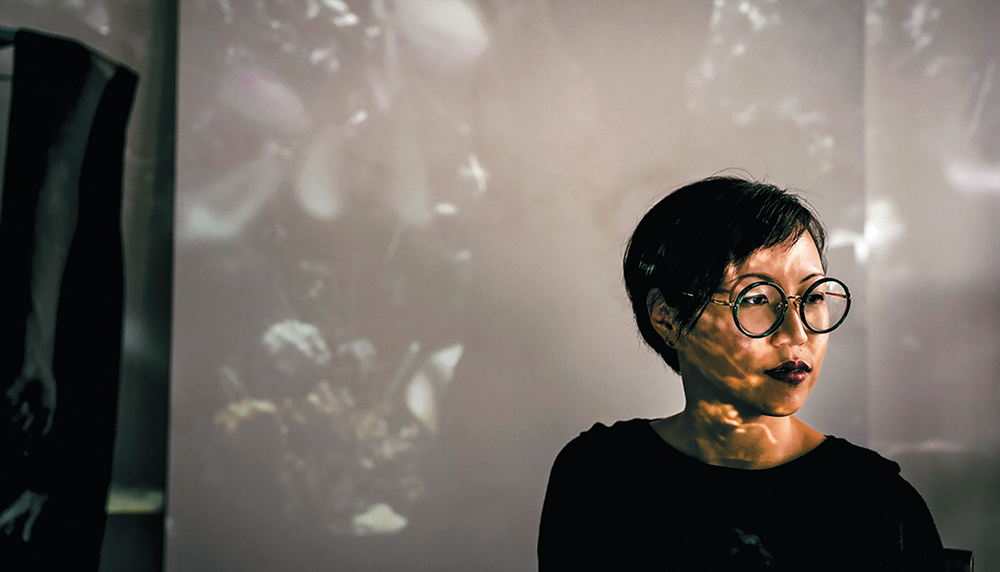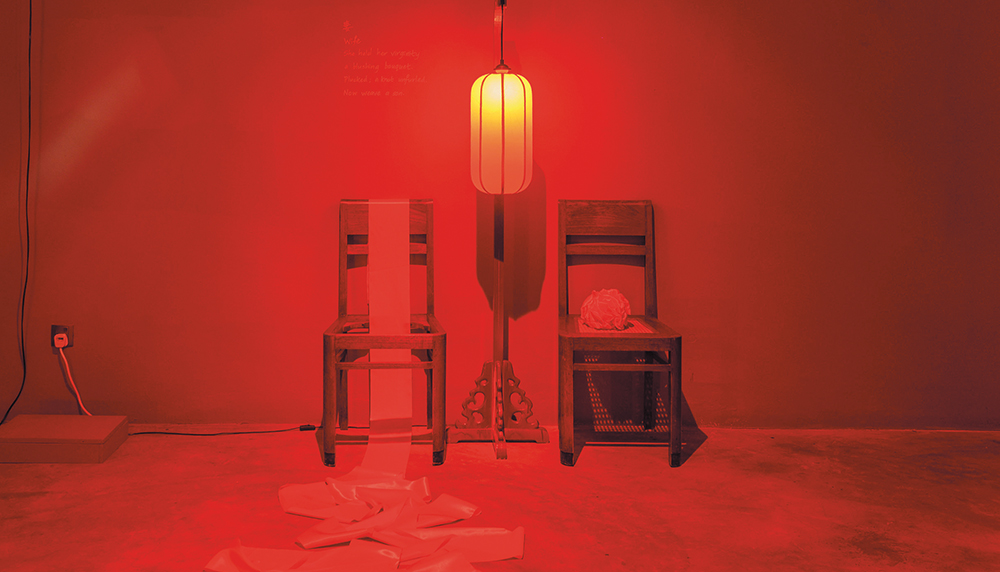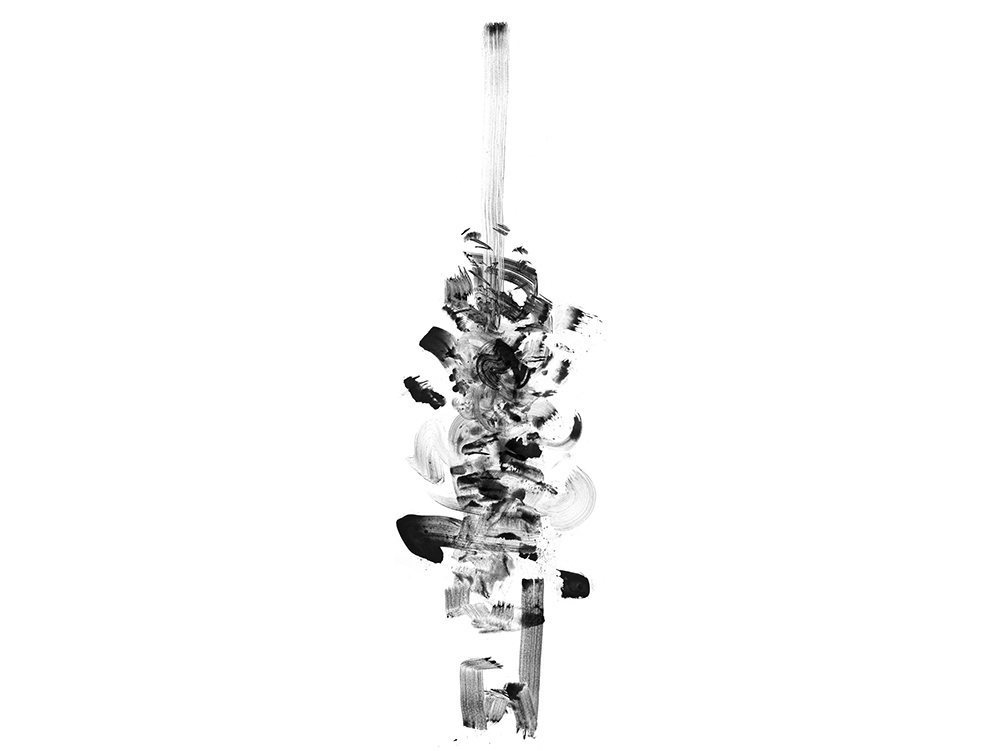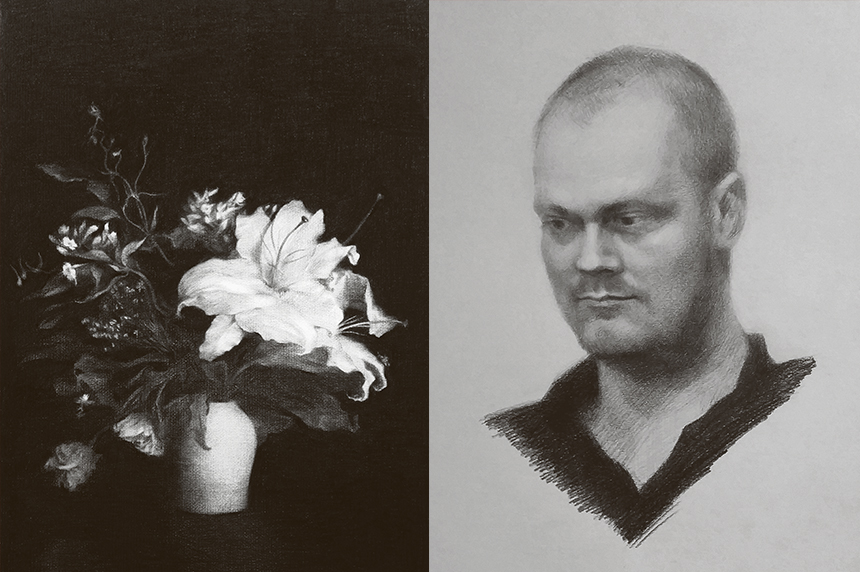Thriving in the Unknown
National Arts Council Young Artist Award recipient Dr Yanyun Chen on finding her voice as a visual artist and helping her students find theirs.

Nestled within the lush Yale-NUS College campus are two art studios, one of which is named after the eminent painter Georgette Chen. Here, students of the liberal arts college learn the secrets of the trade from Dr Yanyun Chen. It is a class that many students look forward to, since they will be learning from the best in the business: Currently the Arts Practice Coordinator for the college’s Division of Humanities, Dr Chen, 35, is a recipient of the National Arts Council Young Artist Award, Singapore’s highest accolade for young arts practitioners.
But it is not just her artistic prowess that draws these students to her class — she is also a favourite because of her approach to issues that students care about. “Studying in a liberal arts environment, these students care deeply and are vocal about a lot of issues,” Dr Chen observes. “I am very impressed by their concern for the community, as well as their sense of social awareness and social justice. So with my class assignments, I keep the themes open and let them work on issues that matter to them.” Her hope is to guide the students through artistic concepts and techniques so that they can express themselves better.
 Wife - Stories of a Woman and Her Dowry; lantern, teak chairs, red ribbons, 2019.
Wife - Stories of a Woman and Her Dowry; lantern, teak chairs, red ribbons, 2019.
For some students, not having a framework stokes fears and insecurities. These, Dr Chen says, are part of the learning process. “At first, they may feel scared and lost because of all the freedom,” she shares. “But with time, they get more comfortable and eventually thrive in these environments. Seeing that transformation is very enriching.”
 Variations and Variables I, charcoal print on cotton Panama fabric, 2019.
Variations and Variables I, charcoal print on cotton Panama fabric, 2019.
QUALITY QUESTIONS
Her aversion to overly-prescriptive education extends to her own art as well. “I would like the audiences to come to their own understanding of the works and I prefer not to take away from that experience by telling them what they are about or being prescriptive,” she explains. That, to her, is the crux of an art education: “Helping students ask questions that will lead them to better appreciate art.”
For example, stepping into a gallery, one can ask whose works are not being seen? Up until a few years ago, a common answer would be “women artists and artists who have taken time away to start families”, explains Dr Chen. “While we see less of such discrimination in Singapore, the issue is more pronounced in the international art scene. We do have a large number of women artists and artists with families practicing in Singapore.”
“There has been progress,” Dr Chen elaborates. “For example, Ms Shubigi Rao will be the first female artist representing Singapore with a solo exhibition at the Venice Biennale.” At the same time, Dr Chen is not taking anything for granted, and advocates greater support for women artists and those with young families. After all, just a century ago, female artists were turned away from Europe’s finest art schools, simply due to their gender.
Even among women, there are those who have privileges that afford them greater opportunities. Does she fit into this category? After some thought, Dr Chen says that she does. She acknowledges that she was able to throw herself into the arts after graduating, because nobody was dependent on her for a living. “I also benefitted from scholarships, so loans and student debt didn’t keep me up at night,” she explains matter-of-factly. “I’m very grateful for those factors.”
![]()
Being in a liberal arts background, these [Yale-NUS College] students care deeply about a lot of issues. I’m very impressed by their concern for the community, as well as their sense of social awareness and social justice.
 Left to right: Flowers VII, Nitram Charcoal on Fabriano Roma paper, 2015; Untitled, pencil on Canson paper, 2013.
Left to right: Flowers VII, Nitram Charcoal on Fabriano Roma paper, 2015; Untitled, pencil on Canson paper, 2013.
THE ACCIDENTAL ARTIST
Her decision to go into the arts came from the peace she found in it as an adolescent. “When I was doing art projects in secondary school and junior college, I would be left quite alone. There weren’t many expectations placed on art as a subject at the time and I found that very liberating.” When the time came to decide on a subject to read at university, she was torn between mathematics and the arts. In the end, she pursued the latter, because of what she describes as “a personal gamble to see if I could carve a space for myself.”
Given her early connection to the arts, it is no surprise that Dr Chen decided to plunge into this arena further after graduation, even though it was not the easiest time to do so. “My batch entered the workforce amid a recession, so it wasn’t all rosy. But social media was not as pervasive, so we didn’t feel like we were competing with our peers every second of the day. There was a sense that we would figure it out along the way. And we did.”
For Dr Chen, “figuring it out” first meant starting an animation business, where she helped brands and companies tell stories through her signature brand of quirky and colourful drawings. She then embarked on a postgraduate trek through schools in Denmark, Sweden, Czech Republic and Switzerland, where she expanded her knowledge of the arts to include classical forms. The influence of these years is apparent in her recent collection of charcoal still life. Following her return to Singapore, she joined the University as an adjunct lecturer in 2015 and started teaching full-time three years later. “Initially, my family and loved ones were very confused by my choices with the animation studio and postgraduate studies. But joining the University made things a lot clearer for them, because they saw the impact I was making with students.” It’s an impact that she hopes to continue making for the final batch at Yale-NUS, which enrolled in the University in 2021. Beyond enriching their lives, Dr Chen also remains committed to furthering her art through a series of residencies, both local and overseas.
The first, which started in December 2021, took her to the Singapore Tyler Print Institute (STPI), a creative workshop and contemporary art gallery based in Singapore that specialises in artistic experimentation in the medium of print and paper. At the time of this interview, Dr Chen was unsure about just what she would achieve there — or in her planned 2022 residencies in Portugal and Ireland. But staying true to herself, she says, “That’s the fun, isn’t it? Starting a journey without knowing the end.” We couldn’t agree more.
A GLOBAL FOOTPRINT

Dr Chen’s works have been exhibited in Argentina, South Korea, Canada, United States, Belarus, The Netherlands and Czech Republic.
See Dr Chen’s works at yanyunchendrawings.com.
Text: Keenan Pereira Main photo: Zachary Tang, Rice Media